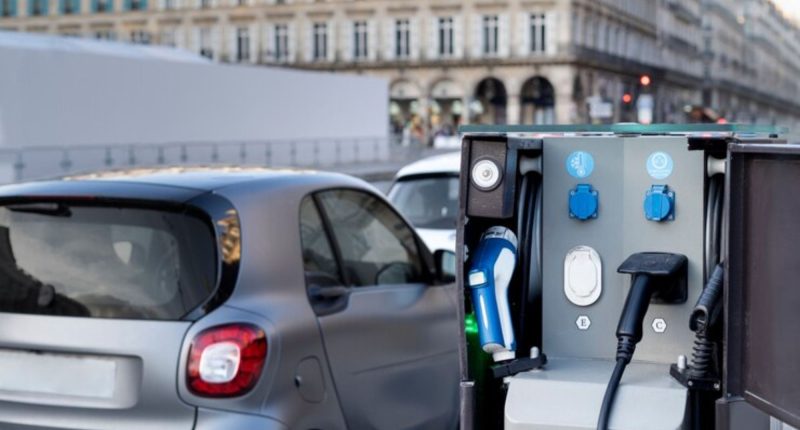
Opinions expressed by Entrepreneur contributors are their own.
You’re reading Entrepreneur India, an international franchise of Entrepreneur Media.
Days after the central government slashed the tariffs on electric vehicles (EVs) under the new EV policy, think tank Global Trade Research Initiative (GTRI) raised concerns about increase import from China. China’s automotive industry, buoyed by substantial state support, has grown rapidly in electric vehicle technology, making it a leading exporter of EVs and related components, (GTRI) said.
According to the report, the imports could go up primarily as Chinese EVs are facing anti-subsidy investigations in the large markets such as the European Union and the US. The recent decision to lower tariffs would, therefore, be a relief for Chinese firms scouting for markets amid declining exports in the US and EU.
“India’s decision to allow Chinese car makers in India and cutting import tariffs on electric vehicles (EVs) will benefit Chinese manufacturers directly or indirectly being the dominant suppliers of EV batteries. Supply chain dependence on China will sharply increase even when non-Chinese companies set shop in India,” GTRI said.
“Just one joint venture between SAIC Motor (owner of the MG brand) and India’s JSW Group aims to sell over 1 million new energy vehicles by 2030. The SAIC Motor Corporation Limited, is a Chinese state-owned automotive design and manufacturing company headquartered in Shanghai, China,” the report said.
Speaking on the matter, Ashwin Bhandari, Co-founder & CEO, iVOOMi said that the industry stands to benefit significantly from these changes, enabling engineering firms to enhance competitiveness, develop superior products, and deliver greater value to consumers. Finally, everything has to be Made in India no matter how we start, all has been quite sure off, so a start with ease and then shift towards localization would be a great idea.
Meanwhile, Dr. Lalit Singh, CEO, TelioEV said that India’s initiative to permit Chinese carmakers and lower import tariffs on EVs is poised to directly benefit Chinese manufacturers, particularly due to their dominant role in supplying EV.
“The recent decision to reduce tariffs on electric vehicles (EVs) may result in a notable increase in imports from China. Chinese EV manufacturers are encountering challenges such as anti-subsidy investigations in major markets like the EU and US, making the tariff cut a welcome development for them as they explore new markets amid declining export figures. India’s initiative to permit Chinese carmakers and lower import tariffs on EVs is poised to directly benefit Chinese manufacturers, particularly due to their dominant role in supplying EV,” he added.
The new EV policy allows the import of completely built-up (CBU) cars at a 15 per cent import duty. Currently, the customs duty on cars imported as CBUs is 60 per cent or 100 per cent, depending on engine size and whether the cost, insurance, and freight (CIF) value is higher or lower than USD 40,000. Where the car costs USD 40,000 or more, the duty is 100 per cent; a cheaper car attracts 60 per cent. However, the maximum number of E4W allowed to be imported at the reduced duty rate has been capped at 8,000 per year.
Dr. Yogesh Bhatia, MD and CEO, LML said that this policy will allow them to aggressively enter our markets and adversely affect Indian manufacturers.
“The Government of India announced duty cuts on import of electric cars with some conditions. While this will encourage companies like Tesla and Vinfast to enter the Indian market, it will also give an advantage to Chinese companies to enter the Indian market. Electric car manufacturers in China are facing problems in the US and EU markets and this policy will allow them to aggressively enter our markets and adversely affect Indian manufacturers. But Chinese manufacturers will not be able to invest so therefore, the duty cuts will not apply to them,” Bhatia told Entrepreneur.
Raising concern over the report by GTRI, VG Anil, CEO, ARENQ, “As an EV battery manufacturer in India, we acknowledge the concerns raised in the recent report by the Global Trade Research Initiative regarding the potential surge in imports from China due to tariff cuts on electric vehicles. While the reduction in tariffs aims to stimulate the adoption of electric vehicles and promote sustainability, it’s imperative for the Indian government to strategically manage the risks associated with over-reliance on foreign manufacturers.”
He also requested the government to implement policies that incentivize local manufacturing, research, and development in the EV sector. “By fostering a conducive environment for domestic manufacturers, India can strengthen its position in the global EV market while mitigating the risks highlighted in the report,” he added.
According to Dinesh Arjun, Co-Founder & CEO, Raptee, the GTRI report emphasizes that indigenous development is not just about building electric vehicles; it’s about building a self-reliant India. By prioritizing homegrown innovation, we can transform from an importer to a leader in the global EV landscape. This not only ensures long-term economic security but also positions India as a key player in shaping the futuristic Automotive Industry.
“The report argues that true progress hinges on indigenous development. Imagine an India where electric vehicles are not just assembled, but meticulously designed and engineered from the ground up. This approach allows us to build EVs specifically tailored to Indian roads and driving conditions. Consider the sturdiness needed for uneven terrains, the efficient battery range required for longer commutes, and the innovative features that cater to diverse customer preferences,” he added.
The automobile industry in India contributes 7.1 per cent to the country’s GDP, up from 2.8 per cent in 1992-93. The industry also accounts for over 50 per cent of India’s manufacturing GDP. It provides direct and indirect employment to over 19 million individuals.
The large-scale entry and market dominance of Chinese automakers into India will impact the domestic auto and EV manufacturers, firms working in EV value chain space, and battery development, GTRI said.
This article is from Entrepreneur.com









